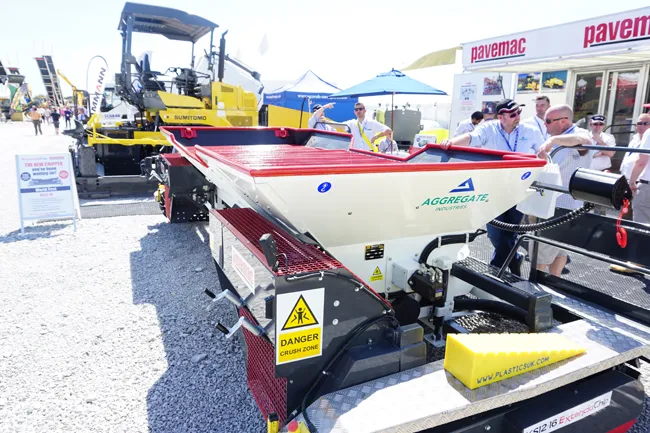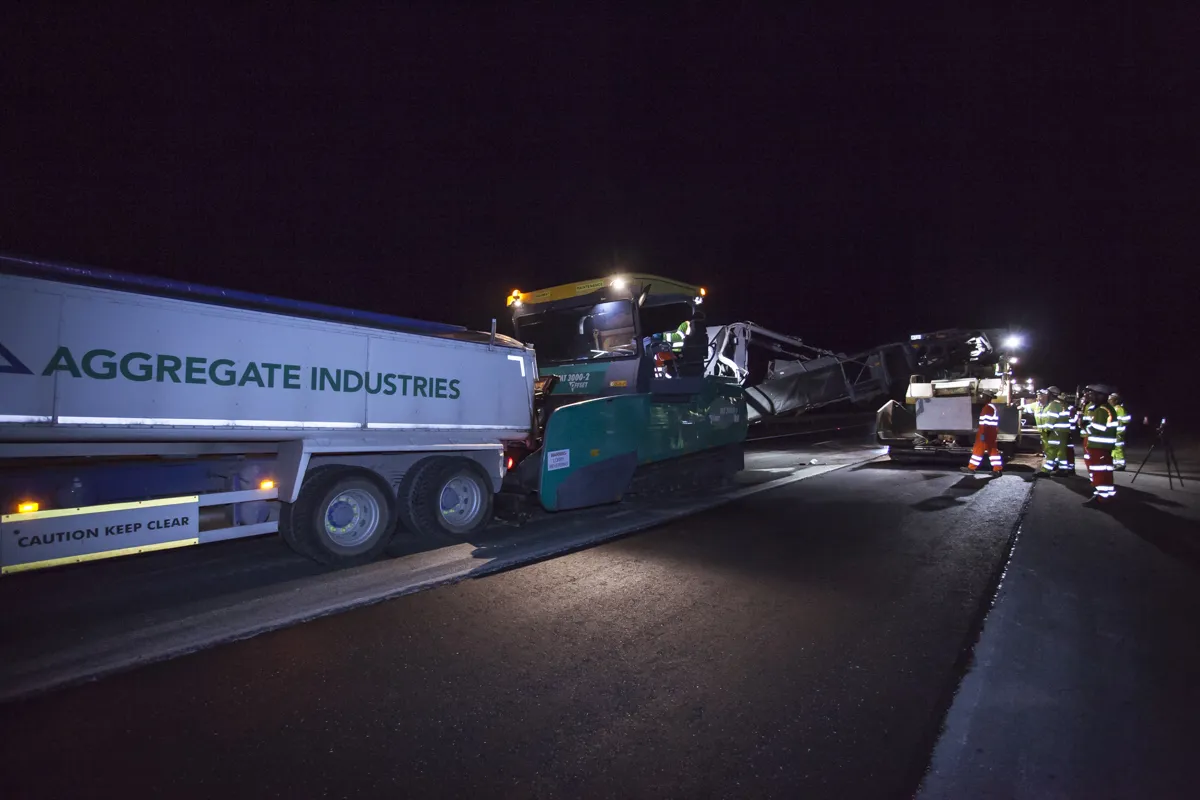
The KS12-16 ExtendaChip Spreader has been developed in conjunction with engineering firm and equipment supplier Pavemac, based in England.
Aggregates Industries claims that it is “the first machine of its kind” to be extendable, with a width range between 3.6-4.9m. This removes the need for multiple chippers on site and so speeds chip spreading operations.
Other features include hydraulically driven tracks instead of wheels, thereby eradicating the risk of runaway machines. An improved hopper design reduces by 50% the load-out height and so provides 360-degree visibility as well as boosting machine stability.
Dashboard controlled automated calibration reduces manual adjustment requirements by the operator. It can provide basic telemetry data to show idle time and hours worked.
“We’ve spent the past 18 months conducting a root-cause analysis of chipper incidents and operations to identify ways that we can reduce or eradicate the safety risks to our employees,” said Paddy Murphy, managing director of the contracting services division within Aggregate Industries. “The results consistently highlighted the need to completely overhaul the chipper design.”
The company said the KS12-16 ExtendaChip Spreader was being trialed in the UK this autumn on a Hampshire Highways Service Contract. With the results collated and adjustments made, the extendable chipper should be available to the wider industry by the end of the year.









